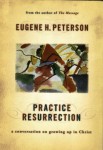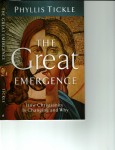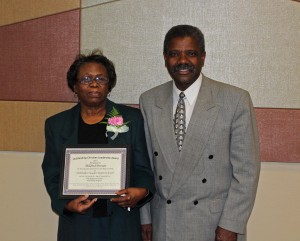Insights into the Lectionary
The Seventh Sunday after the Epiphany, Year B
February 19, 2012
O Lord and Master Jesus Christ, Word of the everlasting Father,
you have borne our grief and carried the burden of our weaknesses;
renew by your Spirit the gifts of healing in your Church,
send forth your disciples again to proclaim the Good News
of your kingdom and to cure the sick and relieve your suffering children,
to the praise and glory of your holy name. Amen.
(Liturgy of St. Mark)[i]
The lections for this Sunday stress the unexpected manner in which God enters into our lives, holding us accountable, renewing us, healing us and forgiving us. God exalts the humble and the meek. God says yes to those to whom society says no. Those who follow God often go against the status quo, throwing aside convention and embracing the downtrodden as God embraces them.[ii]
Isaiah 43 was written in the time of Babylonian exile; the Israelites seek God’s deliverance as in the Exodus of old. They had fallen into misguided patterns of worship and feel burdened by the Law (God) placed on them.[iii] God said, wait a minute – – it was not “to me you brought your burnt offerings, nor to me did you make sacrifices” (vs. 23). Worship was ritualistic; perhaps they worshiped false Gods or ignored the needs of others. The accusation here was that there was a lack of connectedness to God,[iv] but God graciously forgave them, blotting out their transgressions for God’s own sake (vs. 45), because God was about to do a new thing: they (we) are not to dwell on the past or to consider the old ways (vs.18).
It is so easy to fall into that which is comfortable and familiar, that it becomes hard to recognize when ritual has become rigidity, or when tradition has become stagnant. Yet God is always ready to renew God’s people, sweeping in with a rush of waters and angels’ wings so that our faith can always be “a new thing”. Like the people in Isaiah’s time, God forgives and renews us simply because that is what God does.[v]
In 2 Corinthians 1:18-22 Paul begins with the claim that God is an affirming God. God is positive, God is a yes, not a no. God is totally trustworthy; when we respond by trusting wholeheartedly in God our faith has a very firm foundation.[vi] In verses 21-22 Paul describes how God works in the world. God establishes, anoints, seals and gives. These are strong action words; God is not some illusive ethereal entity. God through Christ Jesus acts with compassion and strength to make us whole people of God.
In the Gospel for today (Mark 2:1-12), Jesus is definitely saying yes to the sick and the sinful alike. He is doing it in a manner so new that it is beginning to trouble the religious authorities[vii] who, like the people in Isaiah’s time, have fallen into misguided religious practice.
Jesus is back in Capernaum; the sick and the sin-sore flock to him, literally surrounding the home in which he resides. A paralyzed man had been carried to Jesus by his friends and they couldn’t get through the crowd. However, they were thoroughly invested in bringing their friend to Christ, and they fervently sought his wholeness. They couldn’t get through the door so they sent their friend down through the roof. When Jesus saw him he said, “your sins are forgiven”. The authorities challenged his right to forgive sins (only God can do that). This may have been a “no kidding” moment for Jesus. Certainly the Gospel writer is suggesting that, yes, Jesus is God incarnate. Jesus simply said, “Which is easier to say: your sins are forgiven, or rise, take up your bed and walk?”.
It was widely accepted at that time that physical infirmity was a punishment for sin. In fact, as I studied various commentaries to write this, there was much said about the illness we bring upon ourselves, and the relationship between spiritual or mental distress and physical illness. Of course, we are simultaneously body, mind and spirit; what affects one part of us affects the whole. Yet, when I pictured this scripture happening before me, I saw Jesus at first a little astonished at someone coming in from the roof. Perhaps he was weary of the crowd. Then he was aware of two things: the loyalty and persistence of the friends, and the pain and shame in this man’s eyes. Whether he was sinful or not (and we are all sinners) he felt sinful. He felt unworthy; he didn’t even recognize the value his friends placed on him. Our compassionate Lord looked into the man’s soul, and knew he was as paralyzed with shame and fear as he was of muscle and bone. He needed forgiveness, so Jesus said yes, you are forgiven, restored and healed.
He continues to do so and we are challenged to be like the friends of the paralyzed man. We must be willing to carry the wounded to Christ, to be persistent in helping others to be whole. Our faith is a participatory faith; when God acts we are to respond in kind. God forgives, so we forgive. God cares for us, so we care for others. God has compassion, so we have compassion. In every saving action Jesus demonstrated is the implicit “go and do likewise,” but even in that we are not dependent on our own strength: the Holy Sprit will sustain and strengthen us to achieve the goals God has set before us.
Dear Lord, you perpetually heal and forgive us.
It is always a new thing to be infused with your loving Grace.
When we pray, Lord have mercy, your answer is always yes!
Sometimes it seems too hard to reach you.
Yet you provide us with loving friends who carry us on,
Friends bold enough to raise the roof on our behalf.
Thank you yet again for entering into our lives and taking hold. Amen




 Mildred Brown was recognized by her church, Northside Crusaders Baptist Church, for her Excellence in Ministry. Her passion for people led her into a 33-year career in nursing but even now, in her later years and after suffering a stroke, she is known affectionately at her church as Mother Brown – – and as a doer! Her pastor says that her love of Christ “is reflected in the look on her face, words from her mouth, and her willingness to help in the church and community wherever and whenever she can. Her church has an extensive Kitchen Ministry that feeds many folks from their neighborhood throughout the week, and Mother Brown is in the midst of it. She also oversees their Community Board where she posts words of wisdom and encouragement. (Pictured here with her pastor, the Rev. Theodore D. Tyler, Sr.)
Mildred Brown was recognized by her church, Northside Crusaders Baptist Church, for her Excellence in Ministry. Her passion for people led her into a 33-year career in nursing but even now, in her later years and after suffering a stroke, she is known affectionately at her church as Mother Brown – – and as a doer! Her pastor says that her love of Christ “is reflected in the look on her face, words from her mouth, and her willingness to help in the church and community wherever and whenever she can. Her church has an extensive Kitchen Ministry that feeds many folks from their neighborhood throughout the week, and Mother Brown is in the midst of it. She also oversees their Community Board where she posts words of wisdom and encouragement. (Pictured here with her pastor, the Rev. Theodore D. Tyler, Sr.)